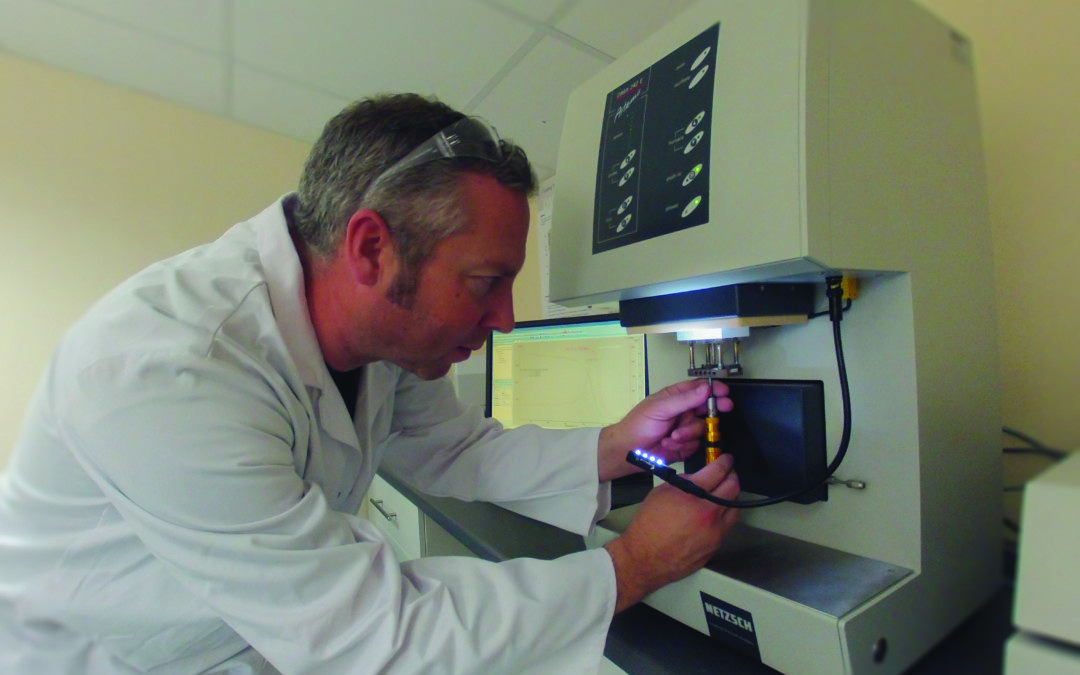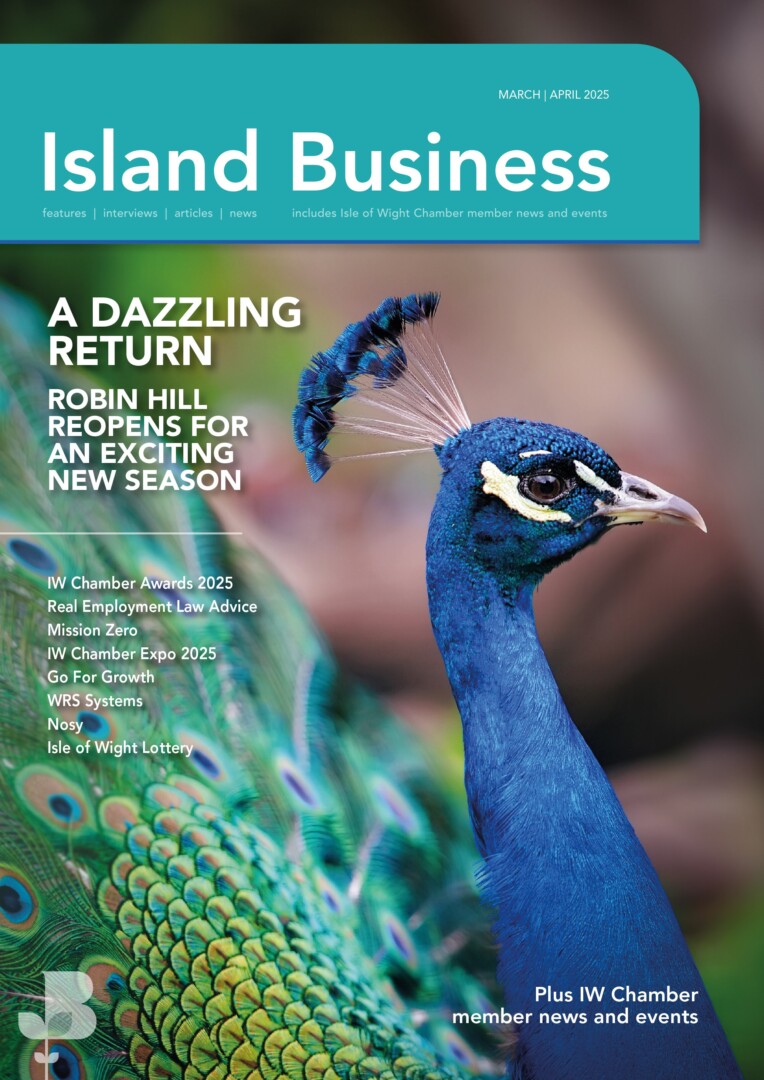“The composite industry is pretty buoyant right now,” says Jeremy Dolby, Managing Director of Red Composites in Newport. His company specialises in a carbon and glass-fibre product, treated with resin, called Towpreg. Customers across Europe buy the Red Composite product to use as the raw material for manufacturing their components.
“People will always want to use less fuel and reduce weight,” Jeremy explains, “whether that’s in an aeroplane or a vacuum cleaner. Composites are taking market share because there’s almost an infinite number of applications where carbon fibre is superior to a material like aluminium.”
Red Composites employs 10 staff and they have commenced manufacturing in excess of 100 tonnes of product each year at their unit on Manners View in Newport. Their main customers are in mainland Europe with some in the UK. Although the company is a young one, established in 2010, the team has many decades of experience.
“Here on the Island there’s obviously a cluster of large established companies and we’re made up of senior managers who were around at SP Systems / Gurit since the early 80s. We were originally focused on the marine markets because we’re quite familiar with that. We’re now driven by the potential demand for our Towpreg product. We saw the gap in the market but we didn’t realise the scale of the materials needed and that changed our plans radically. Business is looking very good and it’s a major challenge for us,” says Jeremy.
The gap in the market that the Red Composites team identified is so huge because, currently, there are only two similar suppliers in the world and both are based in the United States. Around 80% of the global market is being consumed in Europe. “Some very large existing users are very keen to help us develop as a European supplier for Towpreg,” says Jeremy. “We’ve funded ourselves so far and we don’t have any external debt. We may take an industrial partner at some stage, which would probably be a smart move as we enter our growth phase.”
Products manufactured using Red Composites materials are typically pressure vessels like canisters, carrying industrial gases, compressed natural gas or air mixtures for breathing apparatus. Even though the majority of his customers are in Europe, Jeremy says that having a composites cluster on the Island is a good thing.
“It’s definitely a community, with a symbiotic relationship. Between them Gurit, GKN and Vestas have very different business models and operational plans. There is a lot of movement between those companies because they’re chasing the same people. That competition between ‘the big three’ probably also puts up the salaries of people who have experience.”
”Being based on the Island can be a problem logistically, with the cost and the time of moving materials back and forth. It doesn’t help being in England either because our materials often have to get two boats to get here – we then process the product, and then it gets on another two boats. So for a German customer it’s bad enough buying from the UK, let alone the Isle of Wight, with four boat journeys and goodness knows how many trucks. We’re dealing in high-value carbon-fibre so that helps soften the blow of the extra travelling. If the volumes were really high it’s actually not impossible that in five years time we might set up a plant on the continent to be near a major customer.”
First published in the August 2014 issue of Island Business magazine.



